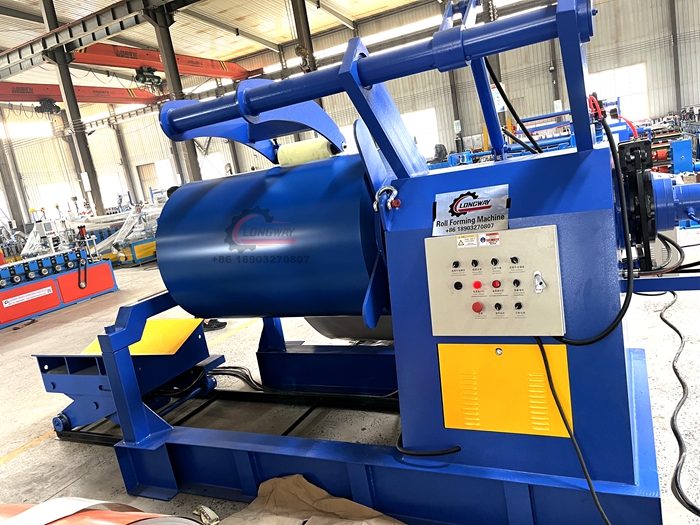Cold Forming Steel Roll Machines for Efficient Metal Fabrication and Production Processes
Understanding Cold Forming Steel Roll Forming Machines
Cold forming steel roll forming machines are essential tools in the metalworking industry, particularly for the production of complex steel profiles with high precision and efficiency. These machines utilize a specialized process that involves continuously feeding a flat strip of steel through a series of rollers, which gradually shape the material into the desired cross-sectional profile. This method is not only efficient but also cost-effective, making it an ideal choice for manufacturers looking to produce high-quality steel components.
The Cold Forming Process
The cold forming process plays a crucial role in the overall performance of the roll forming machine. Unlike traditional hot forming processes that involve heating the metal to make it malleable, cold forming preserves the steel’s inherent material properties. This process enhances the strength of the steel, resulting in profiles that have greater structural integrity and durability. As the steel is cold worked, the grains of the material are refined, contributing to a finer microstructure which, in turn, increases the hardness and tensile strength of the finished product.
Key Components of Roll Forming Machines
A typical cold forming steel roll forming machine consists of several critical components uncoilers, feeding systems, roller stations, cutting units, and control systems. The uncoiler unwinds the coil of steel and feeds it into the machine. As the steel passes through the array of roller stations, each roller introduces a new bend or curve to the profile, shaping the material step by step. The precision of these rollers is paramount; their alignment and configuration determine the accuracy of the final product.
Once the desired shape is achieved, the material is often cut to length by cutting units, which operate either manually or automatically based on the machine’s controls. Modern roll forming machines are equipped with advanced control systems that enable operators to program the specifications of the desired profile, ensuring consistency and reducing material waste.
Applications of Cold Formed Steel Profiles
cold forming steel roll forming machine

Cold formed steel profiles are widely used across various industries, including construction, automotive, and appliances. In construction, these profiles serve as lightweight yet strong structural components for steel framing, roof trusses, and wall panels. Their high strength-to-weight ratio makes cold-formed steel an ideal solution for residential and commercial buildings, offering both strength and flexibility in design.
In the automotive industry, cold formed steel parts are used to manufacture chassis components, body panels, and various structural elements that require both durability and low weight. The appliance industry also utilizes these profiles for manufacturing brackets and supports in refrigerators, washing machines, and other household equipment.
Advantages of Cold Forming Steel Roll Forming Machines
There are several advantages to using cold forming steel roll forming machines. Firstly, the ability to produce complex shapes with high precision reduces the need for secondary operations, such as welding and machining, thus lowering production costs. Secondly, these machines are capable of operating at high speeds, enhancing productivity and allowing for a higher output of finished products.
Additionally, the cold forming process is more environmentally friendly compared to hot forming since it requires less energy and results in less material waste. This aspect aligns with the growing emphasis on sustainability within the manufacturing sector.
Conclusion
Cold forming steel roll forming machines represent a vital technology in the modern manufacturing landscape. They enable the production of high-strength, lightweight steel profiles that meet the demands of various applications. As industries continue to pursue innovative and efficient manufacturing solutions, the importance of these machines will only grow, paving the way for advancements in the production of steel components. With their ability to combine efficiency, precision, and sustainability, cold forming steel roll forming machines are set to remain a cornerstone of the metalworking industry for years to come.
-
Roof Panel Machines: Buying Guide, Types, and PricingNewsJul.04, 2025
-
Purlin Machines: Types, Features, and Pricing GuideNewsJul.04, 2025
-
Metal Embossing Machines: Types, Applications, and Buying GuideNewsJul.04, 2025
-
Gutter Machines: Features, Types, and Cost BreakdownNewsJul.04, 2025
-
Cut to Length Line: Overview, Equipment, and Buying GuideNewsJul.04, 2025
-
Auto Stacker: Features, Applications, and Cost BreakdownNewsJul.04, 2025
-
Top Drywall Profile Machine Models for SaleNewsJun.05, 2025








